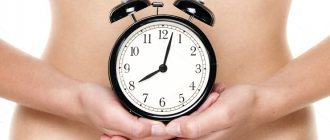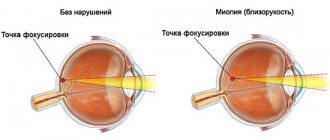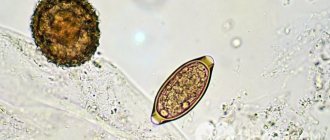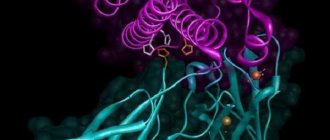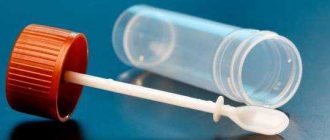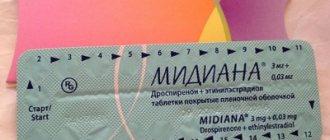Hormones are biologically active substances that are produced by various glands of the endocrine system and then enter the blood. They affect the functioning of the entire body, largely determining a person’s physical and mental health. Hormone tests help to significantly clarify the clinical picture of the disease and prevent its development.
Of course, not every pathology requires urgent such tests, especially since the human body produces dozens of types of hormones, each of which has its own “sphere of influence.”
Hormonal tests: when and why are they prescribed?
Hormone levels are most often determined in the blood, less often in the urine. Hormone tests may be prescribed, for example, in the following cases:
- disturbances in the development of certain organs;
- pregnancy diagnosis;
- infertility;
- pregnancy with threat of miscarriage;
- kidney dysfunction;
- metabolic disorders;
- problems with hair, nails and skin;
- depression and other mental problems;
- tumor diseases.
A referral for analysis can be given by a pediatrician, therapist, endocrinologist, gynecologist, gastroenterologist, or psychiatrist.
Preparing for hormone tests
What rules should be followed when donating blood to analyze hormone levels so that the results are as accurate as possible? It is necessary to refrain from eating for 7-12 hours before blood collection. During the day before the study, alcohol, coffee, physical activity, stress, and sexual contact should be excluded. The possibility of taking medications during this period should be discussed with your doctor. When studying hormonal status, it is important for women to know which day of the cycle they should take tests. Thus, blood is donated for follicle-stimulating hormone, luteinizing hormones and prolactin on days 3–5 of the cycle, for testosterone on days 8–10, and for progesterone and estradiol on days 21–22.
If you donate daily urine, you should strictly adhere to the collection scheme and observe the storage conditions.
General principles of conducting and interpreting analysis
Blood for research is taken from a vein in the morning on an empty stomach. The study period is usually 1–2 days. The obtained result is compared by the doctor with the hormone concentration standards developed taking into account the patient’s gender, age and other factors. The patient himself can study these norms.
Laboratory diagnostic methods
Only a specialist (endocrinologist, gynecologist, therapist, gastroenterologist, etc.) can decide which tests need to be taken for hormones based on the results of the examination. Moreover, the number of tests is commensurate with the number of hormones, and there are more than 100 of them in the body. In the article we will consider only the most common types of studies.
Assessment of the somatotropic function of the pituitary gland is necessary for people who have gigantism, acromegaly (enlargement of the skull, hands and feet) or dwarfism. The normal level of somatotropic hormone in the blood is 0.2–13 mU/l, somatomedin-C is 220–996 ng/ml at the age of 14–16 years, 66–166 ng/ml after 80 years.
Pathologies of the pituitary-adrenal system are manifested in disruption of the body's homeostasis: increased blood clotting, increased carbohydrate synthesis, decreased protein and mineral metabolism. To diagnose such pathological conditions, it is necessary to determine the content of the following hormones in the body:
- Adrenocorticotropic hormone is responsible for skin pigmentation and the breakdown of fats; the norm is less than 22 pmol/l in the first half of the day and no more than 6 pmol/l in the second.
- Cortisol regulates metabolism, the norm is 250–720 nmol/l in the first half of the day and 50–250 nmol/l in the second (the difference in concentration should be at least 100 nmol/l).
- Free cortisol - is given if the presence of Itsenko-Cushing's disease is suspected. The amount of hormone in urine is 138–524 nmol/day.
These tests are often prescribed by endocrinologists for obesity or underweight; they are taken to determine whether there are serious hormonal imbalances and which ones.
Disruption of the thyroid gland is manifested by increased irritability, changes in body weight, increased blood pressure, and is fraught with gynecological diseases and infertility. What tests should be taken for thyroid hormones if at least several of the above symptoms are detected? First of all, we are talking about studying the levels of triiodothyronine (T3), thyroxine (T4) and thyroid-stimulating hormone (TSH), which regulate metabolic processes, mental activity, as well as the functions of the cardiovascular, reproductive and digestive systems. Normal hormone levels look like this:
- Total T3 – 1.1–3.15 pmol/l, free – 2.6–5.7 pmol/l.
- Total T4 – 60–140 nmol/l, free – 100–120 nmol/l.
- TSH – 0.2–4.2 mIU/l.
- Antibodies to thyroglobulin – up to 115 IU/ml.
- Antibodies to thyroid peroxidase – 35 IU/ml.
- T-Uptake – 0.32–0.48 units.
- Thyroglobulin – up to 55 ng/ml.
- Antibodies to microsomal antigen of thyrocytes – less than 1.0 U/l.
- Autoantibodies to thyroid-stimulating hormone receptors – 0–0.99 IU/l.
Failures in the regulation of calcium and phosphorus metabolism lead to osteoporosis or increased bone mineralization. Parathyroid hormone promotes calcium absorption in the intestinal tract, as well as reabsorption in the kidneys. The content of parathyroid hormone in the blood of an adult is 8–24 ng/l. Calcitonin promotes calcium deposition in bones, slowing its absorption in the gastrointestinal tract and increasing excretion in the kidneys. The normal level of calcitonin in the blood is 5.5–28 pmol/l. It is recommended to donate blood for tests of this type at the onset of menopause, since women during this period are most susceptible to osteoporosis.
The body of any person produces both male and female hormones. Their correct balance ensures the stability of the reproductive system, normal secondary sexual characteristics, and an even mental state. The production of certain sex hormones may be disrupted due to age, bad habits, heredity, and endocrine diseases.
Reproductive system dysfunctions caused by hormonal imbalances lead to male and female infertility, and also provoke miscarriages in pregnant women. If there are such problems, they donate blood to analyze female hormones, such as:
What tests to take
The list of studies is determined by the gynecologist depending on the nature of the pathological process and the expected disease. If infertility is suspected, it is often necessary to undergo hormone tests to determine the level of not only steroids, but also thyroid hormones, which affect the entire body and reproductive system.
Types and functions of sex hormones:
- progesterone. The second name is “pregnancy hormone”. Responsible for the level of fertility, ensures embryo implantation and the correct course of pregnancy. The corpus luteum hormone suppresses the activity of oxytocin, prevents uterine contractions to preserve the fetus;
- follicle stimulating hormone. An important regulator controls the proper growth of the egg. FSH deficiency negatively affects the functionality of the ovaries and the onset of ovulation;
- testosterone. Women need the male sex hormone in low concentrations for good condition of the skin, bones, nails, and muscles. Androgen provides sexual desire and the ability to conceive. Testosterone deficiency negatively affects the maturation of follicles in the ovaries;
- luteinizing hormone. Studying the level of LH allows you to understand whether ovulation has occurred or not. Violation of hormone secretion is a sign of improper functioning of the endocrine system, a tumor process in the pituitary gland;
- estrogens. A group of hormones, the most active fraction is estradiol. Functions: controls the timely formation of female sexual characteristics, strengthens the walls of blood vessels, prevents the development of osteoporosis, maintains optimal endometrial thickness. Estradiol affects the water-salt balance, lowers the level of bad cholesterol, and stabilizes the concentration of other hormones throughout the cycle.
Important details:
- If your next menstruation is delayed or pregnancy may develop, you need to donate blood for beta-hCG. An excess of the concentration of human chorionic gonadotropin by more than 2 times compared to the norm for non-pregnant women indicates successful conception, if the indicators are normal (no more, then menstruation will appear in a few days);
- when planning a pregnancy, you need to donate blood not only for LH, hCG, FSH, testosterone, progesterone, estrogens, but also to determine the Rh factor and blood type of the future parents. Tests for syphilis, AIDS, and blood PCR are required to identify hidden infections. It is important to pass the TORCH complex. You also need a urine test, a study of blood composition, determination of hemoglobin, ESR and leukocyte values.
Problems with conception, the menstrual cycle, libido, weight stability, immunity, and general well-being often appear with a deficiency or excess of thyroid hormones: thyroxine and triiodothyronine. When the synthesis of T3 and T4 is disrupted, the level of thyroid-stimulating hormone of the pituitary gland (TSH) changes, which disrupts physiological processes in the body, including the organs of the reproductive system.
Learn about the benefits of cinnamon for diabetes, as well as the use of the spice to treat the disease.
What is the normal blood sugar level for women over 50? Read the answer at this address.
On the page https://vse-o-gormonah.com/vnutrennaja-sekretsija/polovye/razryv-yaichnika.html, read information about the first signs of ovarian cyst rupture in women, as well as methods of treating the pathology.
Indications for hormonal testing
These studies are carried out if the patient has:
- infertility;
- spontaneous abortions;
- menstrual disorders;
- delayed puberty or premature puberty;
- inter-cycle discharge;
- dysfunctional uterine bleeding;
- decreased sexual desire;
- pain during sexual intercourse;
- dryness and atrophy of the vaginal mucosa;
- signs of endometriosis;
- hirsutism;
- anovulation;
- symptoms of polycystic ovaries;
- chronic inflammatory processes in the pelvis;
- galactorrhea;
- mastopathy;
- neoplasms in the uterus, ovaries and mammary glands;
- signs of sexual infantilism;
- obesity;
- cardiovascular pathologies at a young age;
- signs of osteoporosis;
- obesity;
- lactation disorders after childbirth;
- pain in the mammary glands;
- severe PMS;
- severe menopausal disorders;
- hair loss;
- acne, etc.
Hormonal levels are also examined to determine the ovulatory period, assess the control of ongoing hormonal therapy, control drug induction of ovulation, before in vitro fertilization, assess the condition of the feto-placental complexes, etc.
Causes of hormonal imbalance
Identifying the causes of hormonal imbalance is mandatory when restoring reproductive health. Female infertility quite often occurs due to disruptions in the functioning of the endocrine system. The causes of hormonal imbalance are varied.
Among them are usually distinguished:
- hereditary factor;
- constant stress (especially if the woman had to endure a strong negative emotional shock);
- taking hormonal contraceptives for a long time without visiting a doctor;
- hard physical work;
- the presence of parasitic microorganisms in the body.
How is blood tested for hormones, on an empty stomach or not?
Patients are often concerned about the question: is blood taken for hormones on an empty stomach or not?
All hormonal studies are carried out exclusively on an empty stomach.
Also, it is not recommended to have sex one or two days before taking hormones.
You should avoid drinking alcohol at least one day before the test.
You should not smoke before blood collection.
In the morning before the test, you are allowed to drink still water.
On the eve of the study, it is recommended to refrain from visiting the sauna, heavy physical activity, and avoid stress.
The attending physician and laboratory staff must be notified of all medications taken by the patient. This is due to the fact that many medications can affect hormone levels.
results
With a transcript sheet, you need to visit the doctor who referred you for analysis again. On the Internet you can find many sites on medical topics with a large amount of information about the causes of deviations in hormone levels, but only a doctor can make an accurate diagnosis. Additional information is often beneficial, but sometimes women misinterpret the results obtained and attribute non-existent diseases to themselves. It is important to consider many factors when evaluating test data.
You need to find a gynecologist you can trust in order to avoid unnecessary expenses and be confident in the doctor’s actions. You cannot be careless about the treatment of pathologies of the reproductive system: you must fully follow the instructions of a specialized specialist.
Analysis of luteinizing hormone levels
Even more interesting:
Tongue with HIV infection photo
Yarina or Dimia
The pituitary gland is the most important endocrine organ in humans. It is responsible for the synthesis of prolactin, adenocorticotropic, thyroid-stimulating, somatotropic, follicle-stimulating, luteinizing, etc. hormones.
Normally, pituitary hormones influence all organs and systems of the body. They affect the growth and development of the body, metabolic processes, the functioning of the reproductive system, the synthesis of hormones by other endocrine organs, etc.
Luteinizing hormone is produced by the anterior pituitary lobe. Normally, LH and FSH regulate the functioning of the reproductive system, are responsible for stimulating the synthesis of estrogens by ovarian tissues, support the maturation of the corpus luteum, activate the synthesis of progesterone, induce the onset of ovulation, control the maturation of follicles in the ovaries, etc.
Tests for LH levels in women are taken from the 3rd to the 8th or from the 19th to the 21st day of the cycle.
The level of luteinizing hormone in a woman’s body depends on the phase of the menstrual cycle and the age of the patient.
An increase in LH can be observed if the patient has:
- basophilic pituitary adenomas;
- hypergonadotropic hypogonadism;
- ovarian wasting syndrome;
- PCOS (polycystic ovary syndrome);
- endometriosis;
- exhaustion and anorexia;
- renal failure, etc.
Also, LH levels may increase during heavy physical activity, treatment with goserelin, ketoconazole, mestranol, naloxone, spirolactone, tamoxifen, troleandomycin, etc.
A decrease in LH is normally observed during pregnancy, after stress, surgery, and with long-term smoking of large quantities of cigarettes.
Also, low luteinizing hormone can be observed with:
- hypothalamic forms of amenorrhea;
- hypogonadotropic forms of hypogonadism;
- pituitary dwarfism;
- obesity;
- luteal phase insufficiency;
- Sheehan's disease;
- atypical forms of polycystic ovary syndrome
- treatment with anticonvulsants, carbamazepine ®, conjugated estrogens, digoxin ®, oral contraceptives, pravastatin ®, progesterone ®, tamoxifen ®, valproic acid ®, etc.
fairy sorceress
A year ago, my friends and I had the idea to create a hormone table, and here is the fruit of our work.
I found it now, I think it will be useful to many
table link
https://www.onlinedisk.ru/file/128341/
they write that it doesn’t open, I’ll try to insert the entire table
The table is for informational purposes only and is not intended for treatment or self-diagnosis.
It only shows which hormone is produced by which gland, the timing of the test and what can affect the result of the indicator. Recommendations on how to test the hormone if there are no other doctor’s recommendations.
everything was collected from medical laboratories, medical encyclopedia.
| Hormone name | Description | Site of hormone production (female body) | Delivery deadlines (cycle phases) * | Source |
| Progesterone (Progesterone) | The steroid hormone of the corpus luteum of the ovaries prepares the endometrium of the uterus for the implantation of a fertilized egg, and after its implantation helps maintain pregnancy. Progesterone levels peak approximately one week after ovulation | corpus luteum of the ovaries, adrenal cortex, placenta | taken approximately a week after ovulation (5-7 days before the start of menstruation) such drugs increase the value of the test result Taking medications such as: clomiphene, corticotropin, ketoconazole, mifepristone, progesterone and its synthetic analogues, tamoxifen, valproic acid. | https://www.invitro.ru/for-clients/analysis-by-a.html https://www.eurolab.ua/ru/pricelist/tests/ https://www.mama.su/ru/inform/diagn/d_ga.php?phrase_id=77365 |
| Prolactin (Prolactin) | A polypeptide hormone that stimulates the proliferation of the mammary gland and milk secretion. Activates anabolic processes. Has a modulating effect on the immune system. During pregnancy, it supports the existence of the corpus luteum and the production of progesterone. With polycystic ovary syndrome, the hormone level is elevated and ovulation is absent. | anterior pituitary gland | follicular, luteal Preparation for the study: 1 day before the study, avoid sex and heat exposure (sauna), 1 hour before the study - smoking.
Decreased values: Taking the following drugs: anticonvulsants (carbamazepine, valproic acid, levodopa), dopaminergic drugs (bromocriptine, cabergoline, terguride, ropinerol), conjugated estrogens, cyclosporine A, dexamethasone, dopamine, apomorphine, metoclopramide (oral), morphine , nifedipine, rifampicin, secretin, bombesin, tamoxifen, thioxin. | |
| Estradiol (E2, Estradiol) | Steroid hormone, the most active estrogenic (female) sex hormone, ensures the formation and regulation of menstrual function, egg development, growth and development of the uterus during pregnancy. | ovaries, adrenal cortex, placenta | follicular (doctor's referral) on the eve of the study, exclude physical activity (sports training) and smoking. In women, the analysis is performed on days 6-7 of the menstrual cycle, unless other dates are indicated by the attending physician. Increasing values: Taking medications such as; anabolic steroids, carbamazepine, cimetidine (in men and postmenopausal women when treated with doses of 2.4 g/day for 1 month), clomiphene (in postmenopausal women), ketoconazole (in hyperandrogenic women), mifepristone (in patients with meningiomas ), nafarelin (subcutaneously administered for polycystic ovary syndrome), phenytoin, tamoxifen, troleandomycin, valproic acid. Decrease values:
| |
| Human chorionic gonadotropin (HCG, beta-hCG, Human Chorionic gonadotropin) | Specific pregnancy hormone. The level of beta-hCG in the blood already on days 6–8 after conception allows one to diagnose pregnancy. | placenta | from 1 day of delay, (doctor's referral) | |
| Luteinizing hormone (LH) | Glycoprotein gonadotropic hormone. Stimulates estrogen synthesis; regulates the secretion of progesterone and the formation of the corpus luteum. Reaching a critical LH level leads to ovulation | cells of the anterior pituitary gland | follicular, luteal (doctor's referral) in accordance with the instructions of the attending physician. For women with a normal menstrual cycle, the study is usually carried out on the 6-7th day of the cycle. Be sure to indicate the day of your cycle. 3 days before taking blood, avoid intense sports training. Acute stress can have a noticeable effect on the secretion of gonadotropins; The study should not be performed during any acute illness. Do not smoke 1 hour before taking blood. In the case of irregular ovulation cycles, blood should be drawn to measure the LH level every day between 8 and 18 days before the expected menstruation to determine the ovulation of the cycle. | |
| Follicle stimulating hormone (FSH) | Glycoprotein gonadotropic hormone of the pituitary gland. Stimulator of follicle development. Reaching a critical level of FSH leads to ovulation | cells of the anterior pituitary gland | follicular, luteal In accordance with the instructions of the attending physician. For women with a normal menstrual cycle, the study is usually carried out on the 6-7th day of the cycle. Be sure to indicate the day of your cycle. 3 days before taking blood, avoid intense sports training. Acute stress can have a noticeable effect on the secretion of gonadotropins; The study should not be performed during any acute illness. Do not smoke 1 hour before taking blood. | |
| Thyroid-stimulating hormone (TSH, thyrotropin, Thyroid Stimulating Hormone, TSH) | Glycoprotein hormone that stimulates the formation and secretion of thyroid hormones (T3, T4) | anterior pituitary gland | follicular, luteal (doctor's referral) | |
| Triiodothyronine total (T3 total, Total Triiodthyronine, TT3) | Amino acid hormone, oxygen uptake stimulator and metabolism activator | thyroid cells | follicular, luteal (doctor's referral) | |
| Free thyroxine (T4 free fraction, Free Thyroxine, FT4) | The most important stimulator of protein synthesis | thyroid cells | follicular, luteal (doctor's referral) 1 month before the study, avoid taking thyroid hormones (as directed by the doctor); a few days before the study, avoid taking medications containing iodine, 131I and 99mTc. Blood collection should be carried out before X-ray contrast studies. On the eve of the study, it is necessary to exclude physical activity and stress. Immediately before drawing blood, the patient should be at rest for at least 30 minutes. | |
| Testosterone (Testosterone) | Steroid androgenic hormone, which determines the development of secondary sexual characteristics, normal sexual function, is involved in the mechanism of follicle regression in the ovaries and in the regulation of the level of gonadotropic hormones of the pituitary gland | ovaries, adrenal cortex | follicular (doctor's referral) On the eve of the study, it is better to avoid heavy physical activity (sports training). In women, the analysis is performed on days 6-7 of the menstrual cycle, unless other dates are indicated by the attending physician. Increasing values: Taking medications such as danazol, dehydroepiandrosterone, finasterine, flutamide, gonadotropin (in men), goserelin (in the first month of treatment), levonorgestrel, mifepristone, moclobemide, nilutamide, oral contraceptives (women), phenytoin, pravastatin (women), rifampin, tamoxifen . Decrease values: Taking androgens, glucocorticoids, drugs such as: danazol (in low doses), buserin, carbamazepine, cimetidine, cyclophosphamide, cyproterone, dexamethasone, dipyridoglutethimide, goeerelin, ketoconazole, leuprolide, levonorgestrel, magnesium sulfate, methandrostenolone, methylprednisolone, metyrapone, nafar elin ( women), nandrolone, octreotide, oral contraceptives in women, pravastatin (men), prednisone, pyridoglutetimide, spironolactone, stanozolol, tetracycline, thioridazine. | |
| 17-hydroxy-progesterone (17-OH progesterone, 17-OP) | An intermediate product of cortisol synthesis in the adrenal glands, the hormone assay is primarily used in monitoring patients with congenital adrenal hyperplasia (CAH). | adrenal glands, ovaries, placenta | follicular (doctor's referral) | |
| Cortisol (Hydrocortisone, Cortisol) | Steroid hormone. Regulator of carbohydrate, protein and fat metabolism | adrenal cortex | follicular, luteal (doctor's referral) | |
| Dehydroepiandrosterone sulfate (DEA-S, DEA-S04, DHEA-S) | Androgen hormone of the adrenal glands, the level of the hormone is an adequate indicator of androgen-synthetic activity of the adrenal glands | adrenal cortex | follicular, luteal (doctor's referral) | |
| Adrenocorticotropic hormone (corticotropin, ACTH Adrenocorticotropic Hormone) | Polypeptide hormone, the most important regulator of the synthesis and release of hormones from the adrenal cortex (accelerates the production of steroid hormones (cortisol, androgens and estrogens) | anterior pituitary gland | follicular (doctor's order) | |
| Insulin (Insulin) | Polypeptide hormone, the main regulator of carbohydrate metabolism | pancreatic cells | follicular, luteal (doctor's referral) | |
| Sex hormone-binding globulin (SHBG) | Blood plasma protein involved in the binding and transport of sex hormones | liver | follicular, luteal (doctor's referral) |
* PHASES OF THE MENSTRUAL CYCLE:
1. follicular (estronene) - the period from the 1st day of the cycle (1st day of menstruation) until ovulation inclusive
2. luteal (corpus luteum phase, progesterone) - the period begins immediately after ovulation - ends with the last day of the cycle
** Before testing hormones, it is necessary to clarify the requirements for preparation, conditions and time of taking the test
ALL THE HORMONES INDICATED HERE (EXCEPT PROGESTERONE) CAN BE TESTED IN 3-7 DAYS OF THE CYCLE (follicular phase), if there is no strict direction from the doctor. Before donating blood, you must clarify in advance the information about the most favorable day for the test in the laboratory. When taking tests, it is necessary to take laboratory reference values so that there is no error when deciphering the analysis results.
Analysis of follicle-stimulating hormone levels
A normal level of follicle-stimulating hormone is necessary to stimulate the maturation of germ cells, the synthesis and release of estrogens, ensuring the full maturation of follicles, and the onset of the ovulatory phase.
It is necessary to donate blood to check follicle-stimulating hormone levels on the fourth to sixth or nineteenth to twenty-first days of the cycle.
Elevated FSH can be observed with insufficient function of the gonads, dysfunctional uterine bleeding, menopausal disorders, renal failure, pituitary tumors, basophilic pituitary adenomas, endometrioid ovarian cysts, ovarian wasting syndromes, etc.
Also, the level of the hormone may increase during treatment with ketoconazole, levodopa, nafarelin, naloxone, pravastatin, tamoxifen, etc.
A decrease in hormone levels can be observed with secondary hypothalamic amenorrhea, hypogonadotropic hypogonadism, obesity, lead poisoning, Sheehan syndrome, hyperprolactinemia, treatment with steroids, carbamazepine, tamoxifen, growth hormone, valproic acid, gonadotropin-releasing hormone, etc.
How periods can affect hormonal levels
Hormonal fluctuations:
- From 1 to 7 days - low estrogen levels.
- From 8 to 14 days - the level of progesterone and estrogen increases.
- From days 15 to 21, progesterone synthesis increases, and estrogen concentration gradually decreases.
- From days 22 to 28, the level of all sex hormones drops sharply. During this period, a woman experiences signs of premenstrual syndrome.
The accuracy of laboratory tests when taking a blood test for hormones is influenced by various factors:
- use of medications;
- eating;
- physical fatigue;
- emotional and mental overload;
- bad habits (alcohol, smoking, drugs);
- Times of Day;
- carrying out physiotherapeutic procedures, X-ray, ultrasound and other examinations several days before taking samples;
- phase of the menstrual cycle (for hormones of the female reproductive system).
Compliance with medical recommendations for preparing for a blood test is a guarantee of obtaining reliable results. Their accuracy may also be affected by different methods used in different laboratories. To reliably assess the state of hormonal levels, endocrinologists, gynecologists and andrologists advise taking samples in the same place.
When planning to take hormone tests in gynecology, you need to remember that the level of concentration of compounds can be affected by physical activity. If a study is prescribed, you should carefully avoid both nervous emotional experiences and exercise and heavy lifting. You need to plan your day well so that you don’t have to rush to the hospital - this can also affect the result. It is unacceptable to take tests if infection is detected, the temperature has risen, or inflammation has begun.
A variety of negative factors can have an unpredictable effect on the results, even if the woman knew exactly what day of the cycle to take hormones and followed the doctor’s recommendations on timing. You need to understand that alcoholic drinks also correct the processes occurring in the body, so the day before the test you should not take anything alcoholic. A week before the study, they refuse any antimicrobial drugs that strongly affect hormonal levels.
Growth hormone level
A normal level of somatotropic hormone is necessary for the full growth and development of all organs and systems. For children, hormone levels are extremely important during growth (normal bone development) and puberty.
Indications for conducting research on this hormone are carried out if the patient has delayed growth and sexual development, early sexual development, accelerated growth, osteoporosis, myasthenia gravis, alopecia, a tendency to hypoglycemic conditions, constant sweating, porphyria.
Increased production of pituitary growth hormone can be observed if the patient has:
- pituitary gigantism;
- acromegaly;
- dwarfism;
- chronic renal failure;
- hypoglycemia;
- decompensated forms of diabetes;
- alcoholism;
- post-traumatic conditions.
Also, hormone levels can increase when treated with insulin, corticotropin, glucagon, estrogens, norepinephrine, dopamine, propranolol, dopamine agonists, arginine, oral contraceptives, etc.
A decrease in the level of somatotropic hormone is observed with gopophyseal dwarfism, hypopituitarism, hyperfunction of the adrenal cortex, chronic sleep deficiency, postoperative interventions, hyperglycemia, treatment with progesterone, glucocorticosteroids, alpha-blockers, beta-adrenergic agonists, bromocriptine, corticosteroids, etc.
Does not depend on cyclicity
According to the generally accepted standard, the amount of follicle-stimulating hormone should be checked from 3 to 8 or from 18 to 22 days of the menstrual cycle. A man can undergo such an analysis at any time. The material is collected only on an empty stomach, otherwise the result will be unreliable.
Calculating the quantitative indicator of this substance will be rational when donating blood during the first or second phase of the cycle. The study requires standard preparation: do not eat 12-13 hours before the procedure, donate blood in the morning on an empty stomach.
A prerequisite is to sit quietly for forty minutes before visiting the laboratory assistant. Prolactin reacts sensitively to emotional arousal, so with the slightest surge it can show the wrong level in the analysis.
Prolactin is very important for a woman’s body: it ensures ovulation and stimulates the development of lactation after the birth of a child. In addition, it greatly affects the concentration of FSH. When a woman is pregnant, prolactin prevents the formation of follicles, which is normal.
If a non-pregnant woman experiences unusual spikes in prolactin concentrations, she will not ovulate.
In the female body, prolactin has different concentrations depending on the time of day. During night sleep, its levels are increased.
In the period after waking up in the morning and before lunch, it drops sharply. After 12-14 hours of the day, the indicators “creep” up again.
The concentration of prolactin in the luteal phase is higher than in the follicular phase.
For greater convenience, we present to your attention a table with hormone testing on cyclic days.
| Hormone | Suitable time period |
| Follicle-stimulating | From 3 to 8 or from 18 to 22 days |
| Luteinizing | From 3 to 8 or from 18 to 22 days |
| Prolactin | First or second phase of the monthly cycle |
| Estradiol | No |
| Progesterone | From 18 to 22 days |
| Testosterone | No |
| DEA sulfate | No |
| Free T3 | No |
| General T4 | No |
| Thyroid-stimulating | No |
| AMG | 3 – 5 days of the cycle |
In order for the interpretation of the hormone analysis to give the most accurate picture of the patient’s health status, it is necessary to take biological samples in the morning, from seven in the morning, no later than nine.
https://youtu.be/3AUWZqXh9cI
Scientists have found that during this period the concentration of any hormones in the blood is at its highest, which means the results will be reliable. However, attention is also paid to the following point: no matter what time the tests were taken, you should not try to analyze the result yourself.
Without special education, it will not be possible to decipher even hormones taken at the appropriate time of day.
If a TSH study is prescribed, which allows a correct conclusion about the state of the endocrine system, then the highest concentration in the blood for such a compound is typical in the morning between seven and eight.
A smooth decrease is observed up to 11. Poor timing can provoke an error by the specialist involved in deciphering the hormone analysis.
This will not be due to the low level of qualifications of the doctor, but rather due to the peculiarities of the biological rhythm of the human body.
If tests are prescribed for hormones produced by the organs of the female system, there will almost always be a link to the cyclical functioning of the body. It is important to consult a doctor and only then go to the laboratory.
The period of menstruation is accompanied by changes in hormonal levels. These adjustments are quite specific, so doctors often recommend doing an analysis to get the most complete picture of a woman’s health status.
The most revealing information is reflected on LH and FSH.
Determination of prolactin levels
A normal level of prolactin is responsible for the normal development and function of the mammary glands, full lactation, normal labor, maintaining sexual desire, normalizing immune reactions, etc.
The highest level of prolactin is observed in the morning, and in the evening there is a physiological decrease in the level of the hormone.
Indications for testing for prolactin are the presence of galactorrhea, pain in the mammary glands, mastopathy, anovulation, oligomenorrhea, amenorrhea, infertility, dysfunctional bleeding from the uterus, obesity, osteoporosis, etc.
An increase in prolactin levels can be observed with:
- prolactinomas;
- hypothalamic tumors;
- pituitary adenomas;
- primary hypothyroidism;
- cirrhotic liver damage;
- estrogen-producing tumors;
- herpes zoster, hypovitaminosis B6;
- therapy with antihistamines, neuroleptics, estrogens, calcitonin, metoclopramide, etc.
A decrease in hormone levels can be observed with pituitary apoplexy, true post-term pregnancy, treatment with anticonvulsants, dopaminergic drugs, nifedipine, etc.
Some hormones and analysis features
Often, a doctor prescribes an anti-Mullerian hormone test for a woman. The doctor will definitely tell you at your appointment which day of the cycle you should take it. Normally, this is the period from the third to the fifth day. Such a study can be prescribed at different ages (up to menopause), since normally the compound should be produced by the female ovaries. If dysfunction of this organ or abnormal activity is suspected, specific studies are carried out.
In a healthy woman, the concentration of this hormone in the blood decreases with age. Depending on the results, the doctor can determine how many oocytes are contained in the patient's ovaries. The indicator is to some extent similar to FSH, but gives a more accurate idea of the state of a woman’s body. When telling what hormones are released on the 3rd day of the cycle, the doctor will definitely pay attention to AMH, especially if IVF is planned.
If tests are prescribed for thyroid-stimulating, gonadotropic, and adrenocorticotropic hormones, such tests do not depend on menstrual cyclicity. The doctor chooses the best date, assessing the condition and individual characteristics of the patient’s body. Luteinizing can most accurately be examined on days 6-7, 20-21 of the female cycle.
To test for prolactin, you will have to come to the hospital in the first or second phase of the cycle. Thyroid hormonal tests are carried out in the first phase.
Thyroid-stimulating hormone level
This hormone is one of the most important regulators of thyroid function. Indications for testing the TSH level are the presence of amenorrhea, delayed sexual or mental development, myopathies, hair loss, infertility, obesity, menstrual irregularities, etc. in the patient.
A blood test for TSH can be performed from the third to eighth or from the nineteenth to twenty-first days of the cycle.
An increased level of the hormone is observed if the patient has thyrotropin, basophilic pituitary adenomas, syndromes of uncontrolled TSH secretion, TSH resistance, juvenile hypothyroidism, primary and secondary hypothyroidism, severe preeclampsia, after hemodialysis, ectopic lung tumors, pituitary tumors, lead poisoning, against the background of anticonvulsant therapy, beta-blocker therapy, treatment with amiodarone ®, rifampicin ®, iron preparations, etc.
Causes and symptoms of hormonal imbalance in women
There are many reasons for hormonal imbalance. These include:
- heredity;
- stress;
- puberty;
- kidney and/or liver diseases;
- disruption of the endocrine gland;
- postpartum period;
- abortions.
Symptoms of hormonal imbalance in women are quite varied. They manifest themselves depending on age, the cause of the disorder and many other factors. In general, hormonal imbalance is accompanied by:
- rapid fatigue;
- irritability;
- apathy, depression;
- menstrual irregularities;
- the appearance of acne;
- deterioration of intelligence;
- weight change;
- decreased libido.
Disruption of hormone production can lead to:
- infertility;
- miscarriages;
- obesity;
- development of cancer;
- development of diabetes mellitus.
As you can see, failure of the endocrine glands leads to the development of dangerous diseases. To avoid them, when the first signs appear, you need to contact a gynecologist and get tested for hormones.
Why do you need a blood test for hormones?
Hormonal disorders before and after childbirth or during menopause are considered normal, but even then the level of these substances in the body must be kept under control, because even the slightest deviations indicate problems in the body. The procedure for taking a test for hormones is not included in routine examinations and is prescribed to check the patient for pathologies of the endocrine system, gynecological diseases or in other necessary cases:
- excess weight, indicating changes in hormonal levels;
- failure of menstruation without good reason;
- problems with conceiving a child, i.e. infertility;
- suspicions of disturbances in fetal development in pregnant women;
- acne;
- pregnancy planning, when you need to prepare for conception;
- benign neoplasms in the breast, for example, fibrocystic mastopathy;
- decreased sexual desire;
- miscarriage;
- sexual infantilism;
- tendency to hereditary diseases;
- deterioration of hair or skin condition;
- blood pressure surges;
- severe premenstrual syndrome;
- digestive system disorders;
- the presence of a tumor of the ovaries or uterus;
- establishing pregnancy;
- Excessive body hair.
In what cases is it necessary to undergo gynecological tests?
After examining and talking with the patient during the appointment, the doctor, if available, prescribes additional tests and studies. It is important for the gynecologist to know how significant the deviations in hormone levels from optimal values are. Often a woman does not suspect that the cause of impaired reproductive function or the active growth of an ovarian cyst lies in a deficiency or excess secretion of regulators.
Indications
Hormone tests are needed by a gynecologist to assess the state of hormonal levels, with fluctuations in which many reproductive pathologies develop. A woman’s reluctance to undergo a comprehensive examination interferes with diagnosis and selection of the optimal treatment regimen.
Some tests are quite expensive, but without determining the concentration of certain regulatory substances, it is impossible to carry out full treatment. Repeated tests are often needed to assess the dynamics of therapy: it is important to check with your doctor about the frequency of tests in order to navigate financially.
Endocrinologist: who is he and what does a specialized specialist treat? Read useful information.
Find out about the normal blood glucose level in men by age, the causes and symptoms of deviations from this article.
Indications for hormone tests in gynecology:
- suspicion of infertility;
- cysts, ovarian tumors;
- severe obesity in combination with cycle disorders, problems with conception;
- irregular menstrual cycle;
- signs of hyperandrogenism (the appearance of male characteristics in women);
- lack of ovulation;
- control of hormone levels during HRT;
- polycystic ovary syndrome;
- suspicion of malignant tumors of the uterus, ovaries;
- deviations in the timing of puberty;
- Ultrasound revealed endometriosis;
- delay in the formation of secondary sexual characteristics or the start of the process ahead of schedule;
- specific symptoms indicating the development of pathologies of the genital area;
- pronounced premenstrual or menopausal syndrome;
- symptoms of mastopathy appear.
An analysis of female hormones is performed not only when identifying signs of pathological processes, but also for preventive purposes. It is important to promptly identify deviations when planning pregnancy and during gestation.
Normal sex hormones in women
Women are characterized by changes in the amount of sex hormones produced. This is due to the specific phase of the menstrual cycle:
- Follicular. The beginning refers to the 1st day of menstruation, and the end refers to the formation of a dominant follicle, i.e. until about 14 days.
- Ovulatory. This includes a period of 3 days after the dominant follicle leaves the egg. This is 14-16 days.
- Luteal. Includes the time from ovulation to the next menstruation, i.e. from 16 to 28 days.
Ratio of FSH and LH
Before the onset of puberty, the balance of FSH and LH is 1:1. As you grow older, this proportion gradually becomes 1:1.5, i.e. the amount of luteinizing agent becomes greater. This ratio remains in the normal state of health of a woman until the onset of menopause - the FSH norm in women is approximately 1.5 times less than the amount of LH.
|
|
|
|
|
|
|
|
|
|
|
How to prepare for the test and when to take it
In order to obtain the most reliable test results, you should carefully prepare for their delivery, taking into account a certain time. General requirements:
- For the study, blood is taken from a vein, since this is the only way to assess the level of highly active substances in the body.
- You should take a hormone test on an empty stomach in the morning.
- A day before the scheduled procedure, you should protect yourself as much as possible from stress and strong, even positive, emotional experiences.
- The day before the analysis, you should give up alcohol and smoking, and you should not introduce food products that are new to yourself and your body into your diet.
- Limit physical activity as much as possible and abstain from sex.
Let's consider the basic rules for preparing for the analysis of female sex hormones:
- FSH - analysis for this hormone should be performed in the morning on an empty stomach. The optimal time for donation is the beginning of the menstrual cycle (3-6 days) or its end (19-21). It is important to understand that to obtain a more complete picture, FSH levels should be studied together with the results of the luteinizing hormone analysis.
- LH is given at 3-8 or 19-21 DC on an empty stomach. During ovulation, a woman's sex hormone levels reach their peak. Its growth begins 12-24 hours before the release of the egg and remains at its maximum level throughout the day.
- The hormone prolactin. To fully control the level of the substance, you should take the test twice: in the 1st and 2nd phases of the cycle. It is extremely important to take the test in the morning on an empty stomach and before the procedure you should come to a state of rest (calm down physically, psychologically and emotionally).
- An analysis for estradiol and testosterone is taken on any day, regardless of the cycle.
- Progesterone is taken strictly in one period - from 19 to 21 DC - at this time its level can be assessed as accurately as possible.
Conducting a general examination
When conducting this type of hormonal examination, those substances that are secreted by the pituitary gland are examined. Tests must be taken on days 3-5 of the cycle. Detection of an increase or decrease in the level may indicate the development of a neoplasm in the gland.
During the general examination, the following is studied:
Luteinizing hormone. It is responsible for the production of estrogen by the sex glands in the female body. This hormone determines ovulation and the formation of the corpus luteum. Indications for luteinizing hormone testing are:
- disorders in sexual development;
- lack of libido;
- irregularities in the menstrual cycle;
- development of polycystic ovary syndrome;
- infertility.
In addition, it is possible that the hormone may increase for physiological reasons, for example, during high physical activity (in female athletes), during dietary fasting, or after exposure to a stress factor.
Follicle stimulating hormone. It got its name because it controls the formation and growth of follicles in the gonads. There may be a natural increase in hormone levels at the time of ovulation, during menopause and after X-ray examination. Therefore, in case of some deviations from the norm, you should not undertake self-medication.
Prolactin. Responsible for the formation of progesterone in sufficient quantities. Prolactin is necessary for normal lactation after the birth of a child. A change in normal values indicates the development of a pathological process. The exception is during pregnancy, when hormone fluctuations are allowed.

